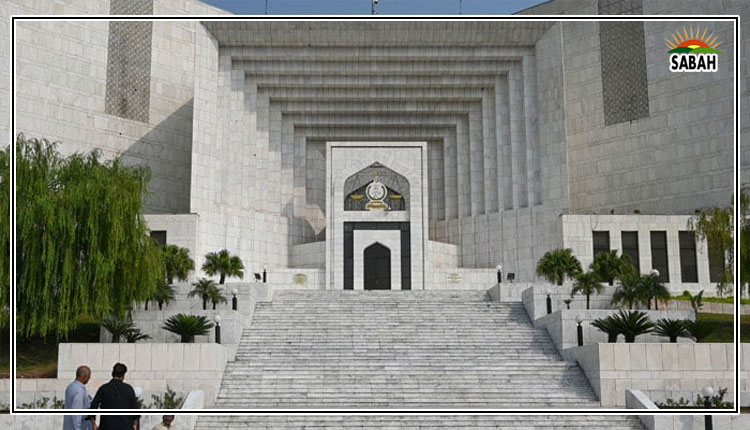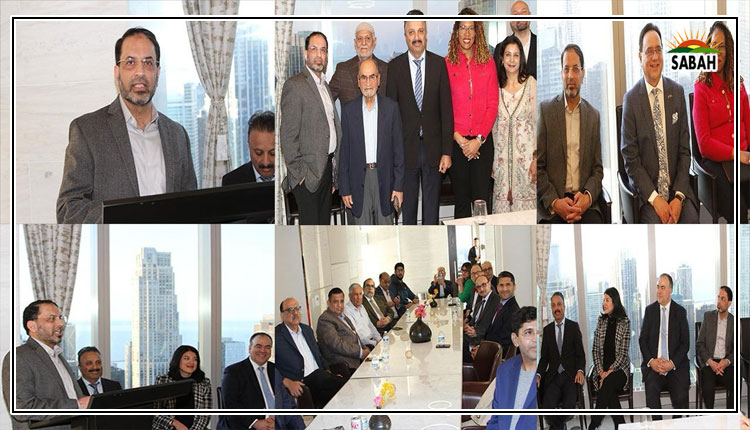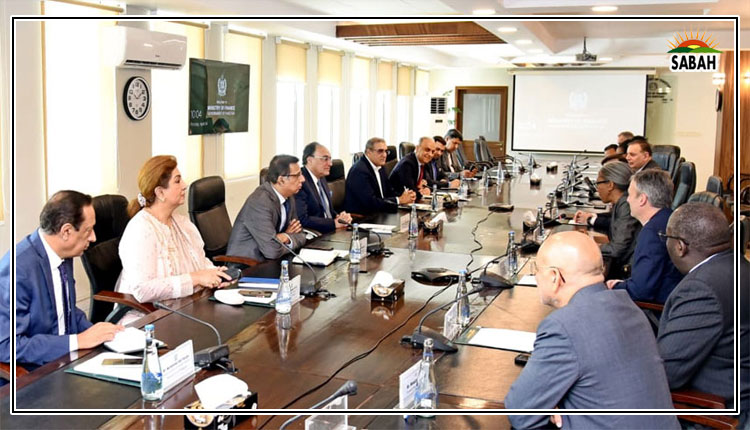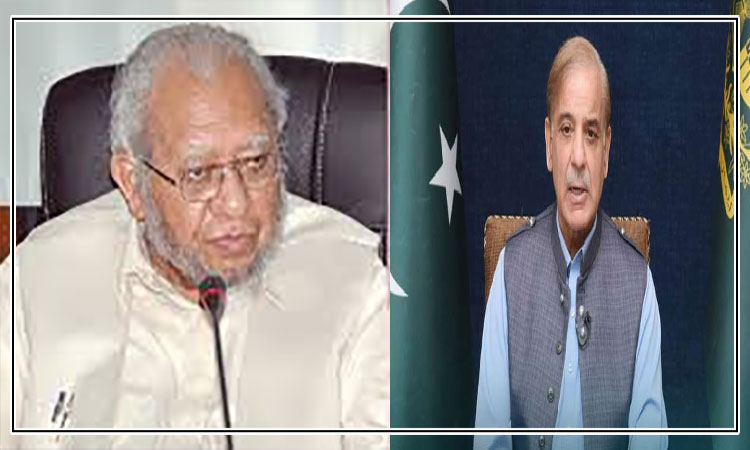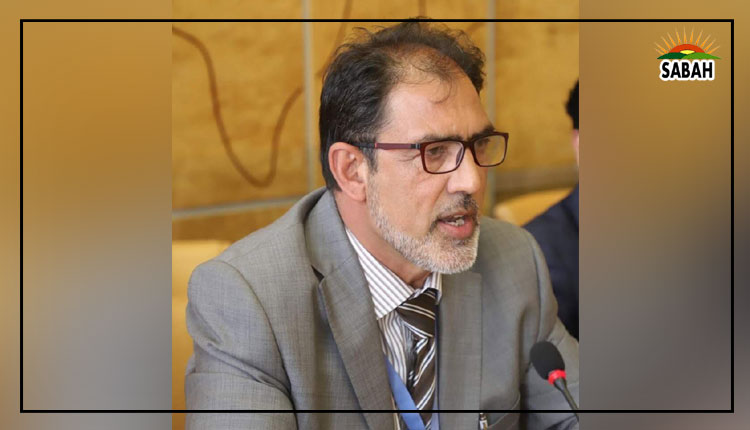KIIR chief seeks revocation of UAPA, other draconian laws being imposed in IoK
GENEVA, Sep 28 (SABAH): Chairman Kashmir Institute of International Relations (KIIR) Altaf Hussain Wani while seeking the UNHRC’s attention towards the woeful plight of Kashmiri human rights defenders, political activists, and civil society organizations has stated that Indian was using black laws to persecute rights defenders, suppress legitimate political voices and people’s right to dissent in the Indian occupied Kashmir.
In a joint letter addressed to all members and observer states of the United Nations Human Rights Council, the KIIR chief while referring to use and abuse of UAPA by authorities in Indian occupied Jammu and Kashmir, said that over the last several years, the Indian authorities in Indian-Occupied Jammu & Kashmir have been engaged in a systematic campaign of repression of human rights and restrictions on civic spaces.
“After the withdrawal of special status on August 05 2019, the Kashmir region witnessed a systematic erosion of press freedom and ruthless suppression of dissent and shrinking of space for civil society”, communique said adding that the intimidation, harassment, reprisals and attacks on human rights defenders have reached a new low which has never been witnessed in the past.
“It has become more difficult and dangerous for human rights defenders, activists, and civil society organisations to operate in the territory”, the letter said adding that shutting down independent media, intimidating and harassing human rights defenders and political activists, banning peaceful protests, and imposing unwarranted restrictions on the operations of civil society organizations were amongst the most abhorrent colonial-era tactics being exercised by the Indian authorities in the region.
Wani while citing the ruthless suppression of dissent in the region, mentioned that prominent human rights defenders and political leaders who have been championing Kashmiris’ political and democratic rights and questioning the Indian illegal occupation have been booked under the Unlawful Activities (Prevention) Act (UAPA) and left to rot in far-off jails away from their homeland.
He said that jailed Kashmiri rights activist Khurram Parvez whom the US-based Times magazine called a ‘modern-day David’ was booked on “terrorism” charges last year. “Khurrum Parvaiz and others were being punished just for working together with international human rights organizations and UN human rights mechanisms including the office of the High Commissioner in documenting brutalities and human rights violations committed by the Indian forces in Indian Occupied Jammu & Kashmir.
He said that besides the offices and residences of the valley-based human rights activists who have been cooperating with international human rights watchdogs since 1990 were raided by India’s National Investigation Agency-the NIA. “These raids, which experts believe are part of the BJP government’s official policy to enforce silence on Kashmir, were aimed to target those critical voices who have time and again spoken out over the stepped-up human rights violations, reckless violence and systematic slow-motion genocide in Kashmir”, he added.
Wani expressed his seriou concern about the safety and security of Khurum Parvaiz and other Kashmiri political prisoners and activists who have been arrested before and after 2019 and continue to languish in jails.
Highlighting the use and abuse of anti-terror laws by the Indian state, Wani said that the BJP government has been remorselessly using the Unlawful Activities Prevention Act (UAPA) and other black laws to persecute Kashmiris. These laws he said flagrantly violated the fundamental rights enshrined under Articles 14, and 21 of the Constitution of India as well as the UN CHarter for Human Rights
“The draconian Act brought into force on 14.08.2019, erodes people’s civil liberties and empowers authorities to categorise individuals/associations as terrorists and detain them without producing any incriminating evidence”, he said adding that under the law, the burden of proof was placed on the individual to satisfy the court or government that he/she was not a terrorist.
The law, he said, ran contrary to the principle of ‘innocent until proven guilty in criminal jurisprudence.
Given the massive abuse of the draconian laws such as PSA, AFSPA, UAPA and other laws, Wani said that there was a dire need for robust and genuine international support and a proper monitoring mechanism, without which Kashmiri civil society organizations will not be able to operate independently in the restive region.
Wani while stressing the need for holding Indian government accountable said that was imperative that during the forthcoming UPR review, the Indian representative should be asked what steps the Indian government had taken to improve the human rights situation in the IOJK.
“Special laws like Armed Forces Special Power Act (AFSPA); one of the most lethal laws mentioned in United Nations Human Rights Council UNHRC reports should be abolished as India agreed in third cycle of Universal Periodic Review (UPR) process”, he said adding that it was being used as a tool to suppress the dissent through illegal detentions.
Regarding the Public Safety Act (PSA), he said that draconian law under which the authorities have the power to put a person behind bars without any trial for up to two years should be abolished. “In past the law was used for prolonged and excessive hunt of youth, political leaders and civil society and human right activists”, he said
Similarly, he mentioned that the Unlawful Activities Prevention Act allows the government to jail an individual for six months, without a trial or bail, stonewalling any judicial intervention.
According to the Amnesty International and the United Nations, he said, the UAPA does not meet international human rights standards. He suggested that the law must be repealed and people jailed under UAPA must be released including Khurrum Pervaiz.
Wani also suggested that India should be pressurized to facilitate country visit of special rapporteurs on right to association and racial discrimination and extra judicial killing and torture to assess the real ground situation in Jammu and Kashmir. He said that india should be asked to ratify convention against torture, enforced and involuntary disappearances, and investigate unmarked mass graves in Jammu and Kashmir.
The KIIR chief said that the appointment of a special envoy for Kashmir would also go a long way to improve the human rights situation in Indian Occupied Jammu & Kashmir and bring an immediate end to the ongoing bloodshed and violence in the disputed territory.


